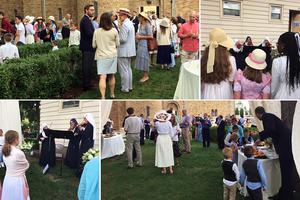Minneapolis Becomes First Large US City to Allow Islamic Prayer Calls Over Speakers
The new ordinance is expected to take effect on Friday, after passing the city council unanimously and gaining the approval of Mayor Jacob Frey.

The mayor of Minneapolis on Monday signed into law a new ordinance allowing the Islamic call to prayer, or adhan, to be broadcast on loudspeakers from the city’s nearly two dozen mosques five times a day, including at dawn and late evening.
The new ordinance is expected to take effect on Friday, after passing the city council unanimously and gaining the approval of Mayor Jacob Frey, who likened the call to prayer to the ringing of church bells and the Jewish shofar. The previous ordinance restricted the adhan practice to between 7am and 10pm.
The change makes Minneapolis the first major U.S. city to allow the Islamic call to prayer to be broadcast at all hours of the day.
Minneapolis is home to a large Somali immigrant population, which is clustered in the Cedar-Riverside neighborhood near the city’s downtown. Three of the 13 city council members for Minneapolis are Muslim and pushed for the change in ordinance, MPR News reported.
The adhan, which is a common practice in Muslim-majority countries, generally takes the form of a live or prerecorded announcement broadcast from a mosque to call men to prayer five times a day, which is one of the Pillars of Islam. The first call takes place when light first enters the sky and the last when the light leaves the sky. In the northerly city of Minneapolis, the first prayer could be as early as 3:30am on the summer solstice to just past 6am on the winter solstice.
“If we get complaints, we want to listen,” Imam Sharif Mohamed of Dar Al-Hijrah mosque in Cedar-Riverside told the Minneapolis Star-Tribune.
In addition to the adhan, the new ordinance technically broadens the hours that church bells can ring as well.
The new ordinance adds language specifying that “[s]ounds created by bells, chimes, carillons, amplifying equipment, or sounds associated with religious worship” are exempt from being noise violations as long as they last only six minutes within any one hour and no more than an hour within any 24-hour period. The new ordinance removes the 7am and 10pm time restriction for all such forms of sound creation.
- Keywords:
- minneapolis
- islam















